This is a podcast in four parts with Rossana Mercado-Rojas and Princess Jimenez Beltre from La Dekoloniala! as podcast hosts. La Decoloniala! has invited two artists, who with their different practices expand what we perceive as public spaces through a decolonial, anti-racist perspective.
A independent production by La Dekoloniala!, commissioned by Public Art Agency Sweden as part of the series Expanded Narratives in Public Art.
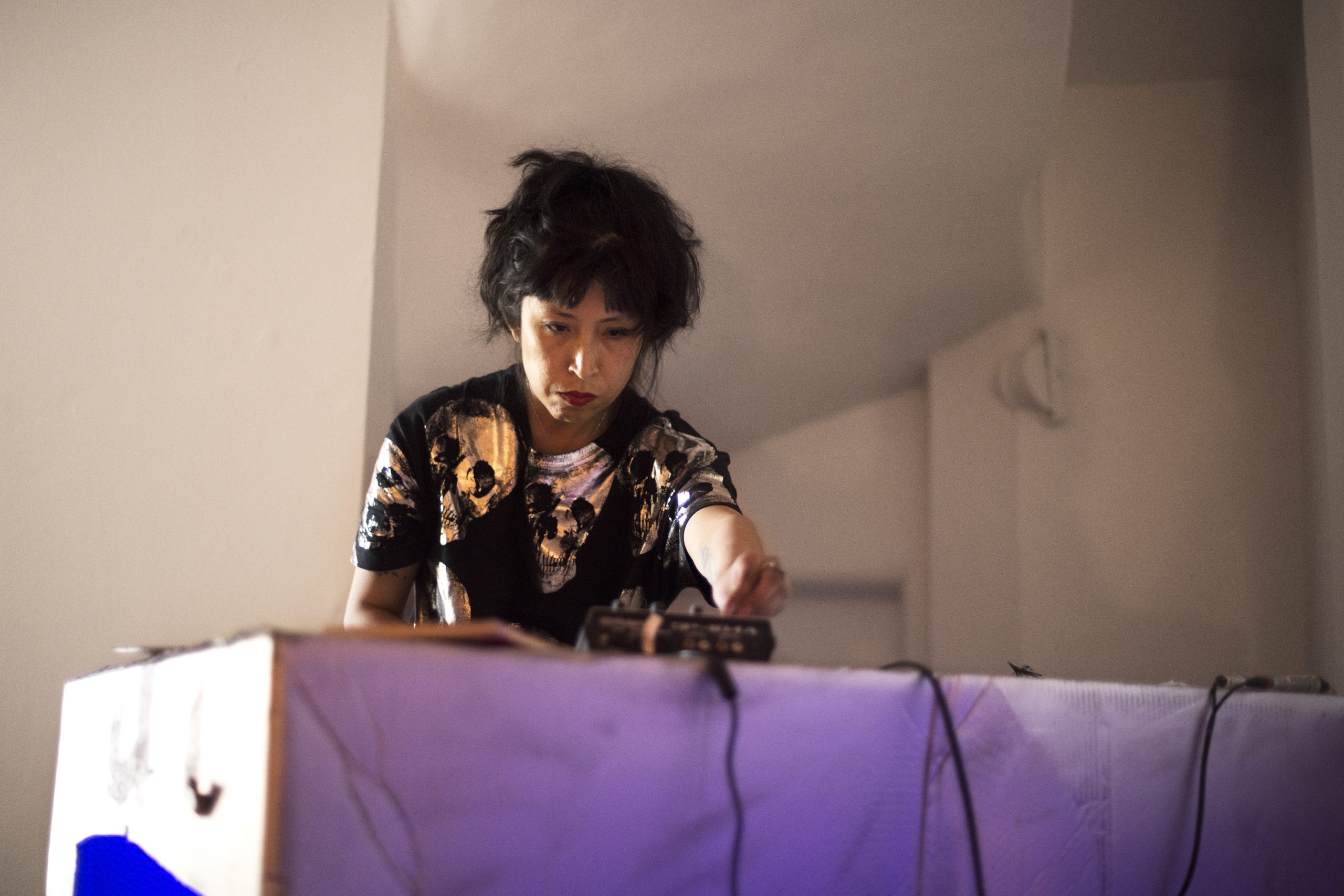
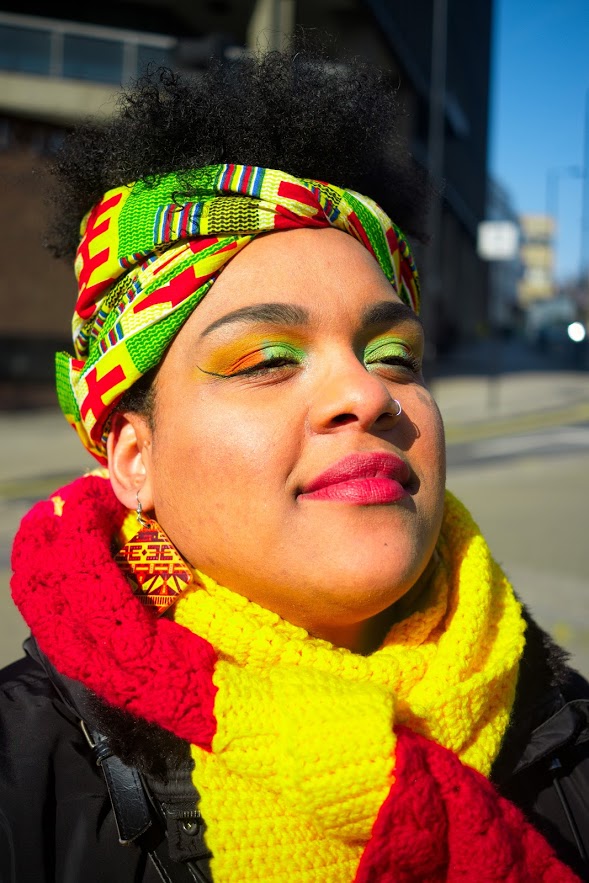
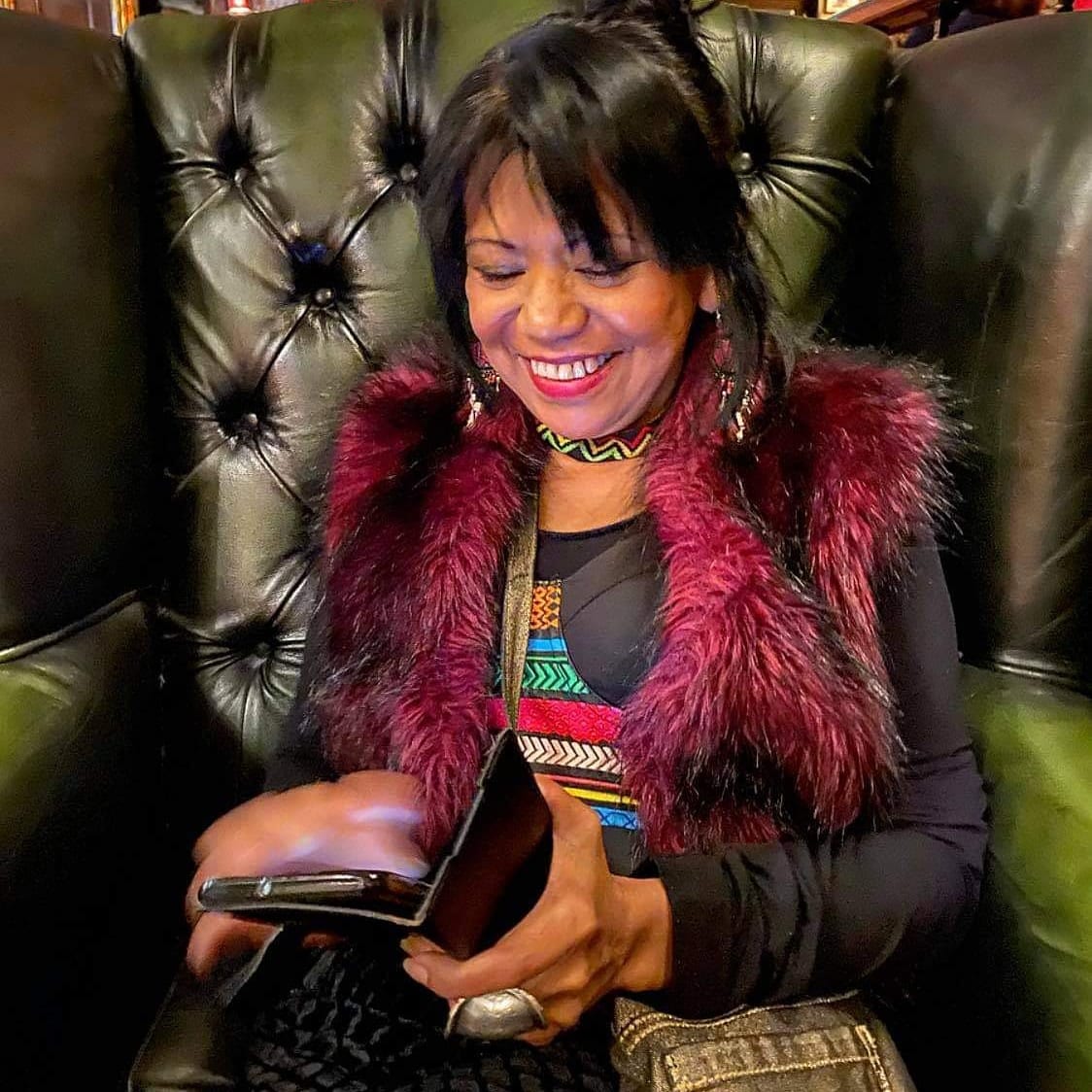
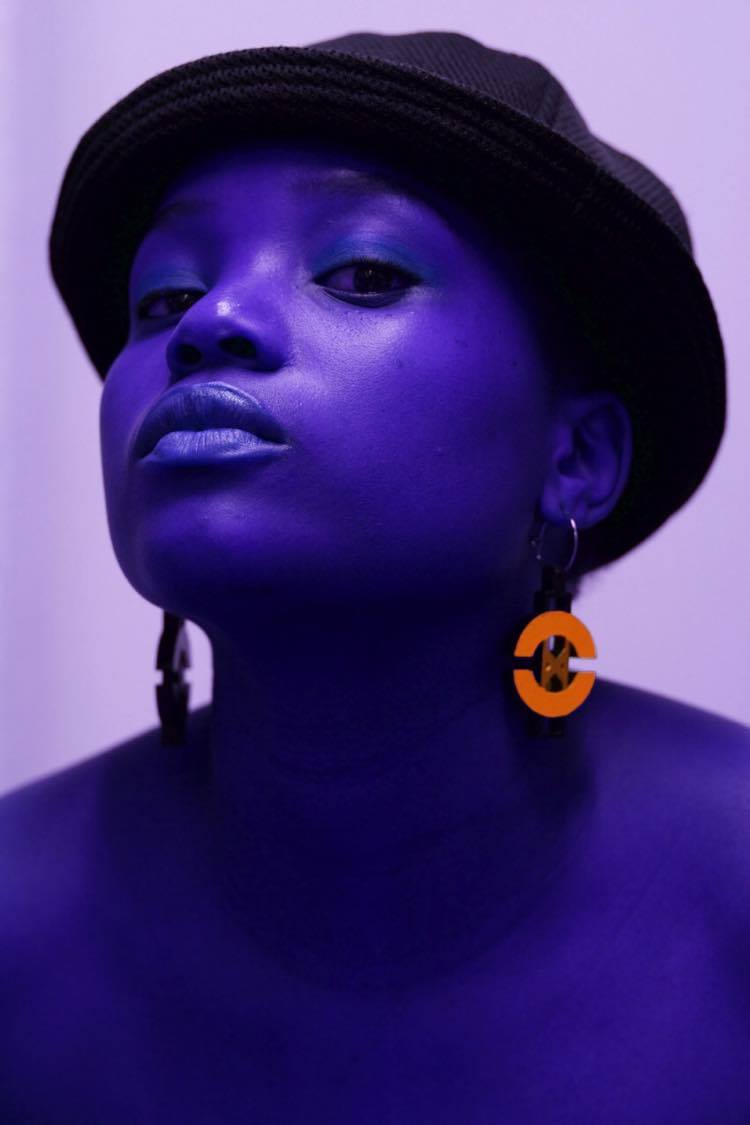

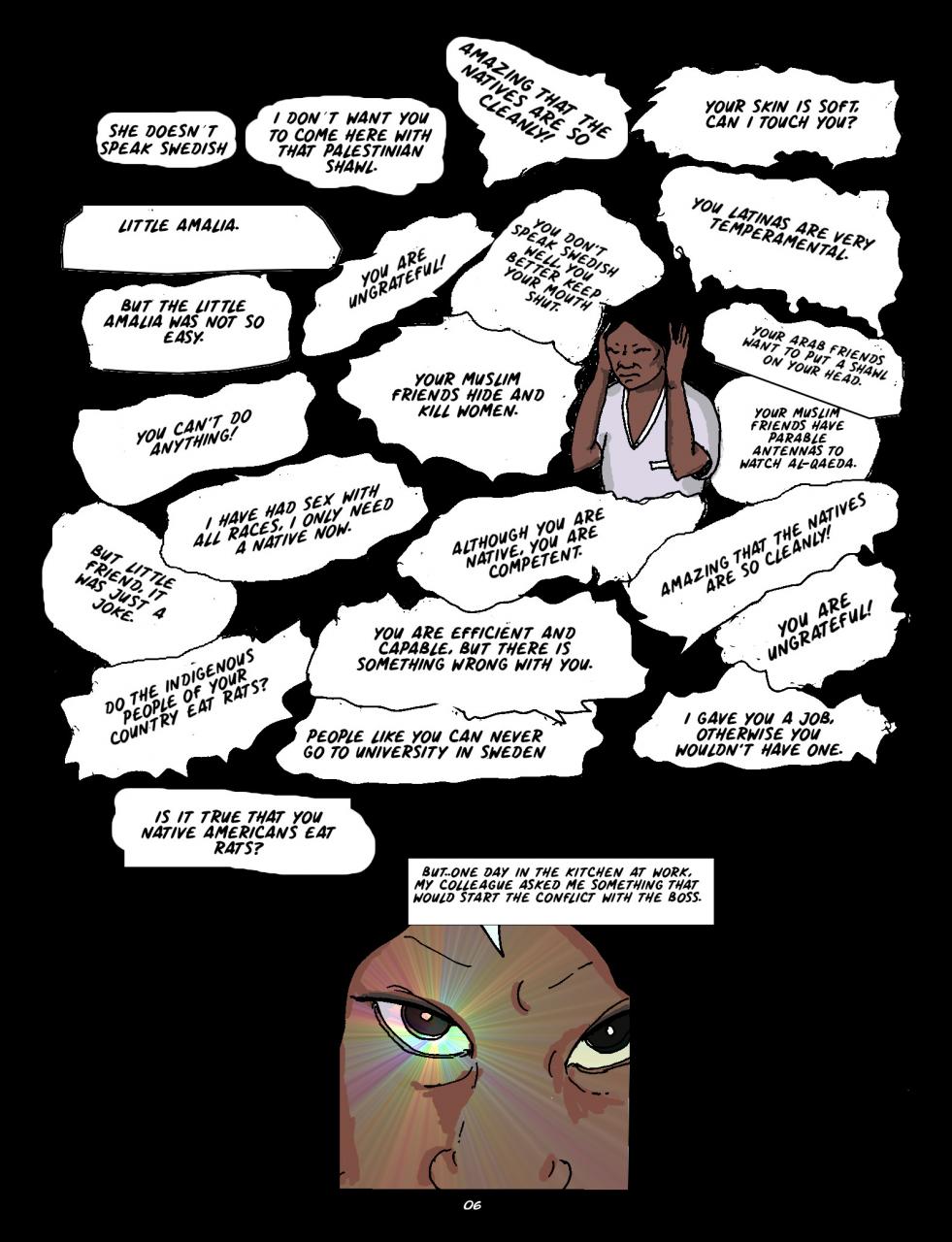
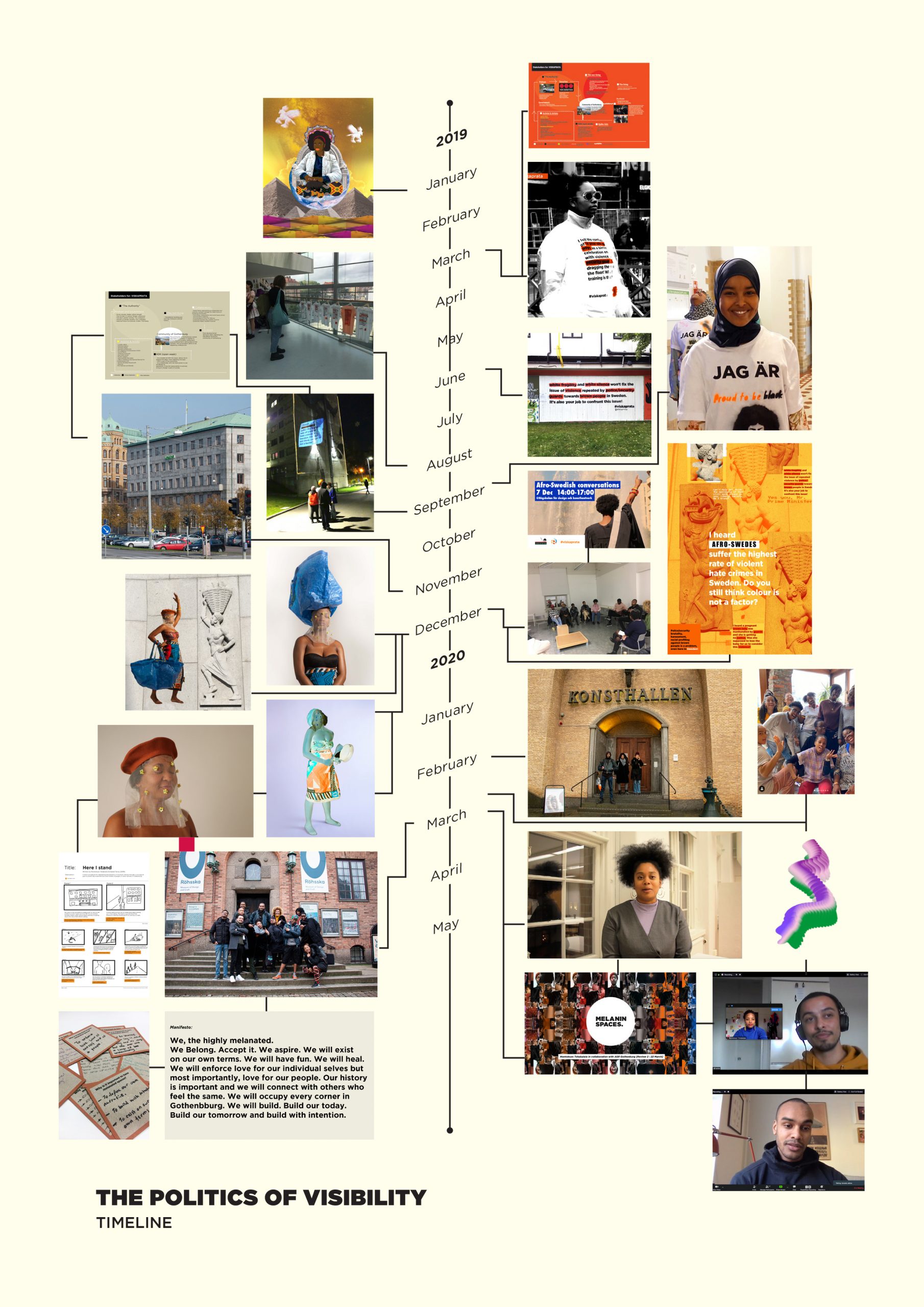
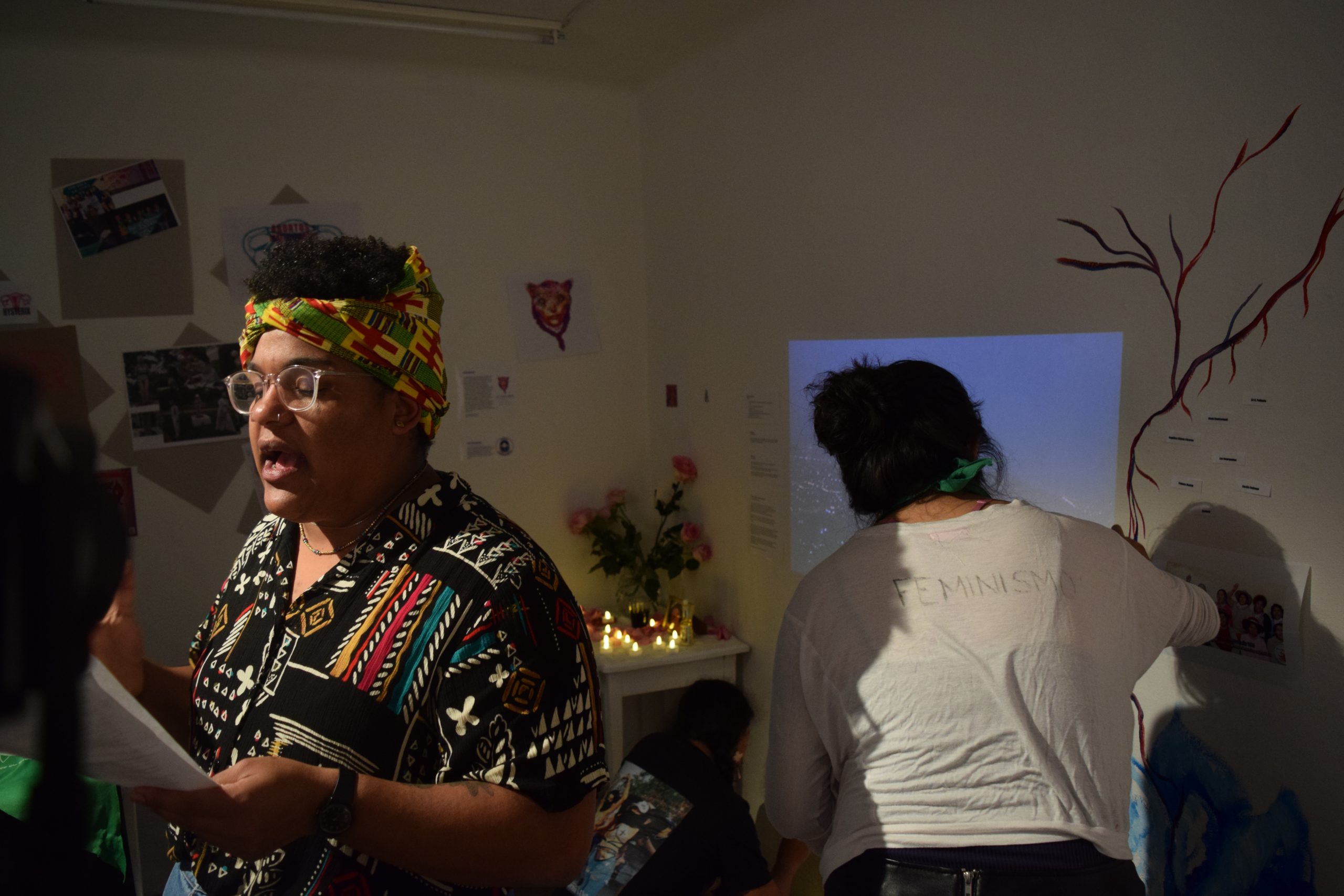
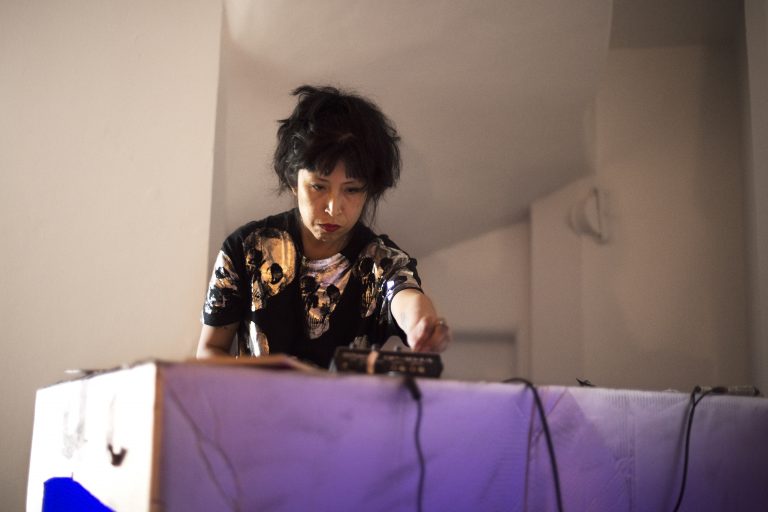

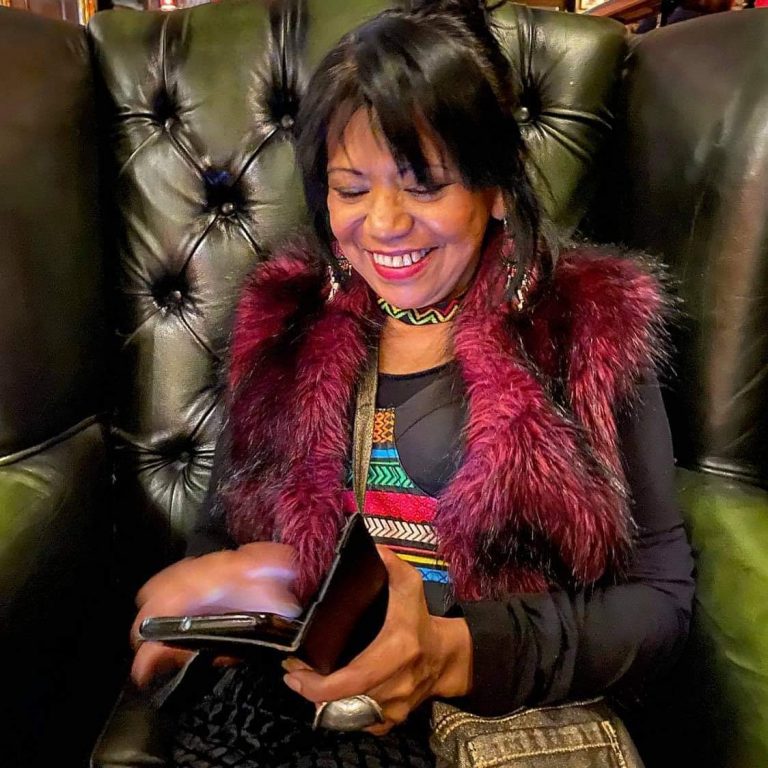


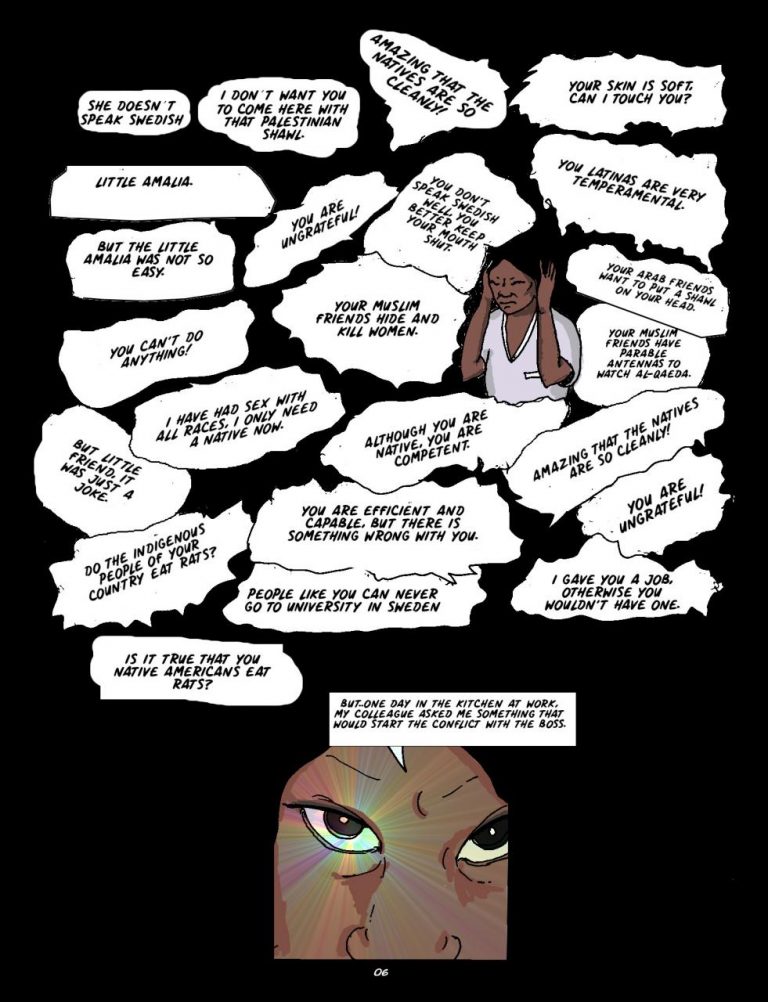
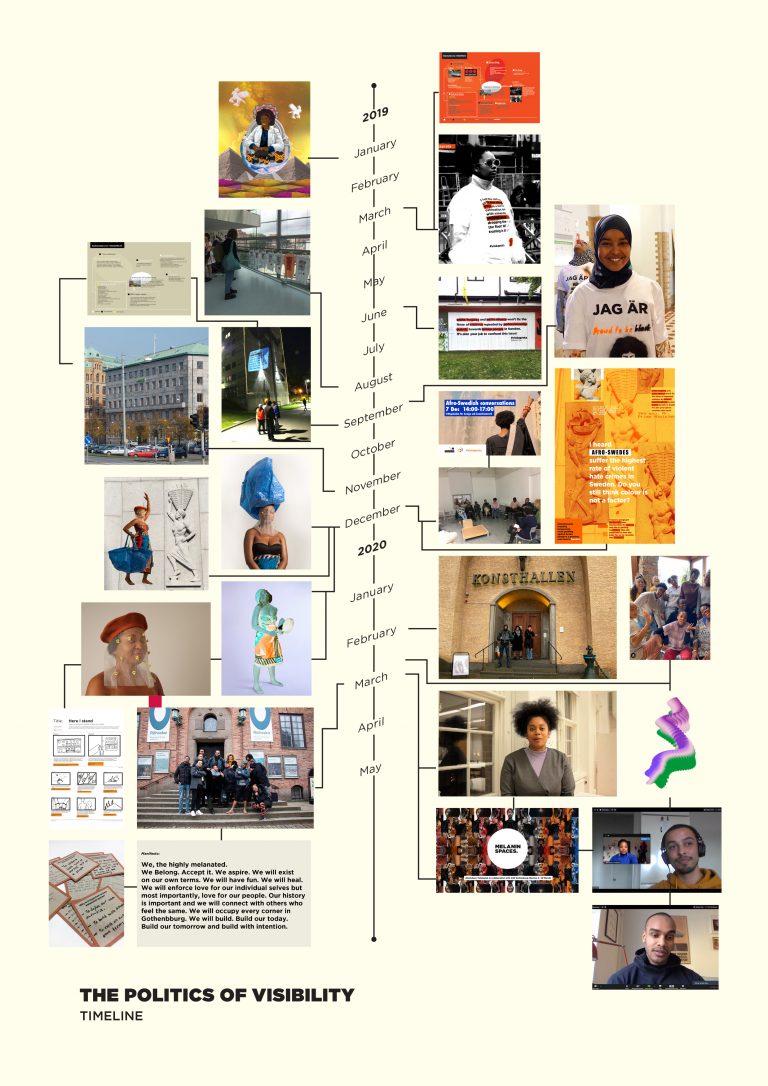
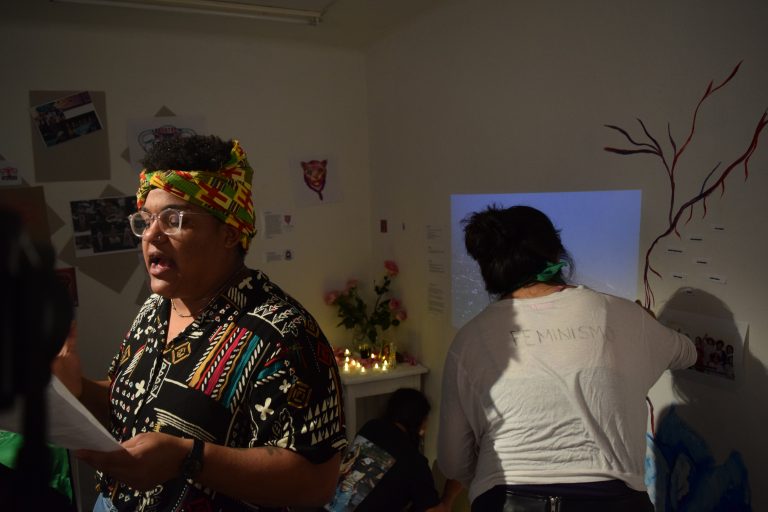
La Dekoloniala! is an educational, artistic, and cultural organization whose main goal is to bring forward decolonial knowledge from the global South.
It is the active pursuit of taking spaces, resources, and to create discussions as a form of decolonial justice. The political action to see us, the colonized, as active people, subjects, experts, as active protagonists in our own history and justice.
The colonized body has always been treated as an object of study rather than subjects that have something to say. We take a radical approach to the discussion, by giving a platform to people who are often ignored by post-colonial academia.
We embrace the diversity and plurality of decolonialism and try to decolonize as much as we can, always from an intersectional perspective.
This series is hosted by two of the members of La Dekoloniala!: Rossana Mercado-Rojas (Peru), artist, cultural worker, anti-racist and intersectional feminist, and Princess Jimenez Beltre (Dominican Republic) educator, writer, spoken word performer and podcaster
Listen to the podcast
Introduction:
Chapter 1: Sound piece including field recordings, readings, a poem “Sin nombre”(2019) ( I’m the savage) Read by Maria Högbacke in swedish and by Angélica Chávez Cáceres in spanish. Also included is the spoken word performance “The myth of the good immigrant” by Princess Jimenez Beltre, recorded at La Gozadera (KKH, 2019).
Chapter 2: Amalia Alvarez a narrated comic episode on her life as comic antiracist artist
Chapter 3: Nontokozo Tshabalala talks about her project Melanin Spaces
Chapter 4: Princess Jiménez Beltre and Rossana Mercado-Rojas talk about creating spaces in a postcolonial world.
La Dekoloniala! about the podcast
Below La Dekolonial! writes about the podcast in their own words.
“It’s of great importance that we are hosting this program. As individual practitioners and as an organization, we strive to reclaim our position as knowledge producers, and decisive voices when the decolonial discourse is at the table.
We come from Peru and the Dominican Republic, former European colonies, and we still carry the burden of the violence of the colonial process in our everyday life. The discrimination and restrictions we face because of the passport we own. Our documents from a nation-state that was built on the blood of indigenous population and slaves, a nation-state whose institutions and national identity is forged with forced labor and slavery. A nation state that became a pond for extractivism enriching the nations of the north, of the first world.
Coming to Europe, the motherland, we encounter the fact that our national identity documents, our colonizer’s language, our official cultures, are not “enough ” anymore in a country like Sweden.
For this podcast we raise questions such as how we are interpreted in the public sphere. The criminalization of our bodies and our children’s. What places are we allowed to inhabit and exist as we are? What agencies do we have and what spaces are denied to us?
As cultural workers we want to bring these issues to the table, to talk about them and to reinforce strategies and methodologies of feminisms from the global South, a branch of feminisms that has its own history line in itself, from our indigenous populations who worked in community with principles of reciprocity and collective responsibility before and beyond the construction of nation-states.
Taking care of others is a practice that puts aside the patriarchal capitalist model of life which mainly separates, individualizes, prioritizes and promotes competition and exploitation. Our proposal adheres to a network structure that accepts and incorporates the falls and relapses and by doing so questions productivity, hierarchy and instead promotes exchange, cooperation and interdependence. That is why we support the action of listening and sheltering. Sheltering others and allowing oneself to be sheltered is an exercise in de-individualizing the trauma, welcoming it, sharing it. We think it is a method to cope with trauma, such as the trauma of living as a racialized person in a postcolonial world.
For this podcast series we have invited two artists, who with their different practices expand what we perceive as public spaces through a decolonial, anti-racist perspective. Amalia Alvarez is an artist, comic creator and anti-racist activist, born in the Likan Antai community (Abya Yala) and based in Malmö, her work focuses on racism/antiracism, representativity, feminism, gender, migration, social issues, and class. In this collaboration Amalia gives us an audio comic narration of her practice taking over spaces in different instances in her life. Also we have Nontokozo Tshabalala, an Afro-futuristic, interdisciplinary artist based in Gothenburg, who uses images and poetry to explore questions about herself as a South African black woman in the world. Nontokozo presents us her project Melanin Spaces where she reflects on public spaces and how they are configured for/by African descent individuals.
This podcast includes different kinds of materials like conversations, artistic soundworks and our own inputs as active subjects, experts, and as leading roles in our own history and justice. In this way, the series provides a framing of art and shared/common spaces in relation to decolonial practices and perspectives based on our organization’s approach to providing a platform for people who are often ignored by the postcolonial academic world.”
/La Dekolinial!
Biographies
La Dekoloniala!:
Rossana Mercado-Rojas (1982, Perú) artist and cultural worker. She holds bachelor degree in painting, a master degree in critical writing and curatorial practice from Konstfack College and a postmaster in sound art and collaborative practices from The Royal Academy of Arts in Stockholm. She was recently selected to be part of the writing residency offered by Kontshall C. Her practice explores decolonial feminist practices, public spaces and collective work, racialized womanhood, motherhood, and immigration. She is one of the initiators of women artists’ collective Hysterix (Peru) focusing on multidisciplinary interventions in the public realm; also she is board member of Galleri Majkens, artist-run gallery producing feminist-themed exhibitions in Stockholm. Rossana is also one of the founders of La Dekoloniala!
Princess Jimenez Beltre (1987 Dominican Republic) educator, writer, spoken word performer, and podcaster. She has a bachelor’s degree in Special Education from Utah State University. Currently living in Sweden. She is one of the founders of La Dekoloniala!, an educational, artistic, and cultural organization whose main goal is to bring forward decolonial knowledge.
Her articles have been published at Kultwatch, The Local Sweden, and Black Feminist Collective. She runs Mango Podcast, an informational and opinion driven platform where different topics are discussed from an intersectional feminist and decolonial perspective, and where she has collaborated with activists and educators around the world in English and Spanish
Guest artists:
Nontokozo Tshabalala is a South African multidisciplinary artist, Afrofuturist currently living in Gothenburg. She is also the Co-founder of Mam’Gobozi Design Factory which is a design studio aiming to create a space for design from the Afrikan continent (currently the South) to define itself away from the western gaze.
With a grounding in graphic design, she uses visuals and poetry to explore some of the questions she has about herself as a South Afrikan black woman in the world.
Amalia Alvarez, descendent of Doña Liberata Ckatur of Lickana. Amalia is born in the Likan Antai community (Abya Yala). She is an artist, anti-racist activist and comic creator. She often works in the genres of social realism and satire, focusing on racism/antiracism, representativity, feminism, gender, migration, social issues, and class, through an intersectional perspective. Her work is part of the permanent exhibition “Women making history” at Malmö Tekniska museum . She has published two books “Fem papperslösa kvinnors historier” and “Fem historier om prostituerande”.
About Chuqui Chinchay
Chuqui Chinchay is a two gender, jaguar deity worshiped by indigenous cultures mainly in what is now called Peru. Only third-gender maestros called Qari Warmi could led the rituals in their honor. Their androgynous clothing were a visible sign of a third-space, a space between masculine and feminine, the present and the past, and the living and the dead. They invoked a creative force, within and without the binaries of human existence. The spanish colonizers tried to erase any trace of indigenous knowledge, in this case regarding sexual and gender diversity, the catholic religion was imposed with cruelty and indigenous practices were completely criminalized.